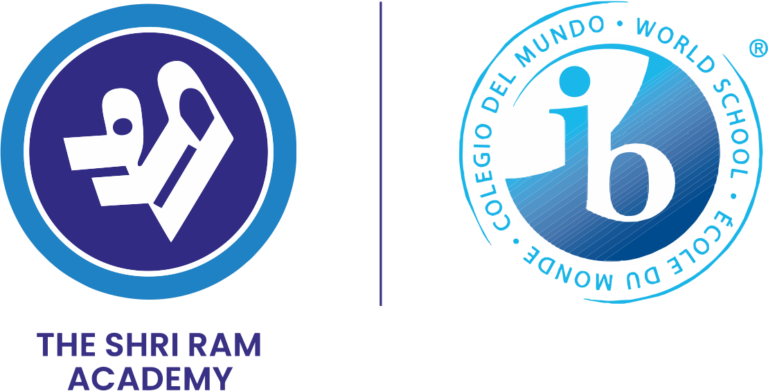What Is IB Board? A Complete Guide for Parents and Students
As parents, we’re no strangers to many school boards in India – “CBSE, ICSE, Cambridge… and now IB”
If you’re based in Hyderabad, chances are you’ve heard other parents talking about the IB curriculum in Hyderabad and the growing number of schools offering it.
But with popularity comes confusion: what exactly is the IB board? How is it different from other boards? And are the higher IB schools in Hyderabad fees really worth it?
This guide breaks it all down for you. Understanding the International Baccalaureate (IB) board, its programme, and unique learning approach, particularly for parents and students in Hyderabad.
What is the IB Board and how does it work?
The International Baccalaureate (IB) is a globally recognised educational framework that prioritises the intellectual, personal, emotional, and social capabilities of students.
Unlike national boards such as CBSE or ICSE, which are specific to India, or even the IB, which focuses on developing inquiry, knowledgeable, and caring young people who help create a better world through education.
Further, the IB curriculum promotes a holistic, inquiry-based curriculum that emphasises critical thinking, research, and global awareness.
The Four IB Programmes Explained
The IB offers a continuum of four distinct, age-appropriate programmes:
- Primary Years Programme (PYP): For students aged 3-12, the PYP focuses on transdisciplinary, inquiry-based learning. It encourages students to ask questions and explore concepts across subjects, rather than learning them in isolation.
- Middle Years Programme (MYP): Designed for students aged 11-16, the MYP builds on the PYP’s foundation with an interdisciplinary approach. It helps students connect classroom learning to the real world and emphasises critical thinking and communication.
- Diploma Programme (DP): This is a rigorous, pre-university programme for students aged 16-19. It’s the most widely recognised IB programme. It requires students to study a broad range of subjects while also completing three core components: the Theory of Knowledge (TOK) course, an Extended Essay (EE), and Creativity, Activity, Service (CAS).
- Career-related Program (CP): It serves students aged 16 to 19 through a flexible structure. It connects Diploma Program (DP) academic studies with career-related coursework and the building of practical skills.
Key Features of IB Education
An IB education is distinguished by several key features that set it apart from other curricula:
- Student-centred learning: The IB model encourages students to take ownership of their education by actively participating in their learning journey.
- Emphasis on research and critical thinking: Through components like the Extended Essay and Theory of Knowledge, students learn to conduct independent research, analyse complex ideas, and form reasoned arguments.
- Multilingual learning opportunities: The curriculum encourages students to become proficient in more than one language. This helps them understand various cultures.
- Continuous assessment model: The IB combines internal and external assessments, including projects, presentations, and essays. It does not depend solely on final exams. This approach provides a broader view of a student’s skills and knowledge.
Benefits of Choosing IB in Hyderabad
- Holistic Development: The International Baccalaureate (IB) program aims for holistic growth, featuring arts, sports, and community work, along with studies, that help students grow socially.
- University Recognition: Many top universities worldwide value the IB Diploma. Prestigious schools in the US, UK, and Europe recognise the program’s challenges and may even offer college credits for high scores. This answers the question, “Is the IB board better for studying abroad?” The global recognition of the IB gives its students an advantage in international university admissions.
- Future skills: The program gives students skills needed for success now, like teamwork, problem-solving, and being able to change plans when needed.
- Cultural Awareness: The focus on global topics and different viewpoints helps students learn about and respect other cultures, preparing them for today’s global world.
Understanding IB Fees in Hyderabad
One of the main concerns for parents in the IB Schools in Hyderabad is school fees. The academic fees can vary depending on different factors:
- Facilities: IB schools often have world-class facilities, including state-of-the-art labs, libraries, and sports complexes.
- Location and Accreditation: Schools located in prime urban areas and those with full IB accreditation often have higher fee structures.
- Faculty Training: IB teachers require specialised and ongoing professional development, which adds to the operational costs.
- Co-curricular Activities: The range and quality of co-curricular and extracurricular activities can affect the overall fee structure.
- Reputation and Brand Value: Schools with strong academic histories and good reputations usually charge higher tuition.
The average cost can range quite a bit, maybe from ₹1.7 lakhs to more than 10 lakhs. It hinges on the school itself, what grade the student is in, and what the school offers.
Conclusion
The IB Board isn’t the right fit for every child. It’s a challenging, inquiry-based program that works best for students who are curious, self-motivated, and do well in a setting that values critical thinking and connections between different subjects over memorising facts.
At The Shree Ram Academy, one of the best IB schools in Hyderabad, we don’t just focus on books and tests; we help students develop skills, provide a global-minded perspective, and a strong foundation for career growth.
FAQ
- What is the IB board equivalent to in India?
The IB board is a global curriculum, whereas Indian boards like CBSE and ICSE are nationally focused.
- Are IB schools more expensive than CBSE schools in Hyderabad?
Yes, IB schools in Hyderabad are considerably have higher fees compared to CBSE schools due to international curriculum, faculties, and facilities.
- Can IB students study in Indian universities?
Yes, IB students are eligible to apply in Indian universities.
